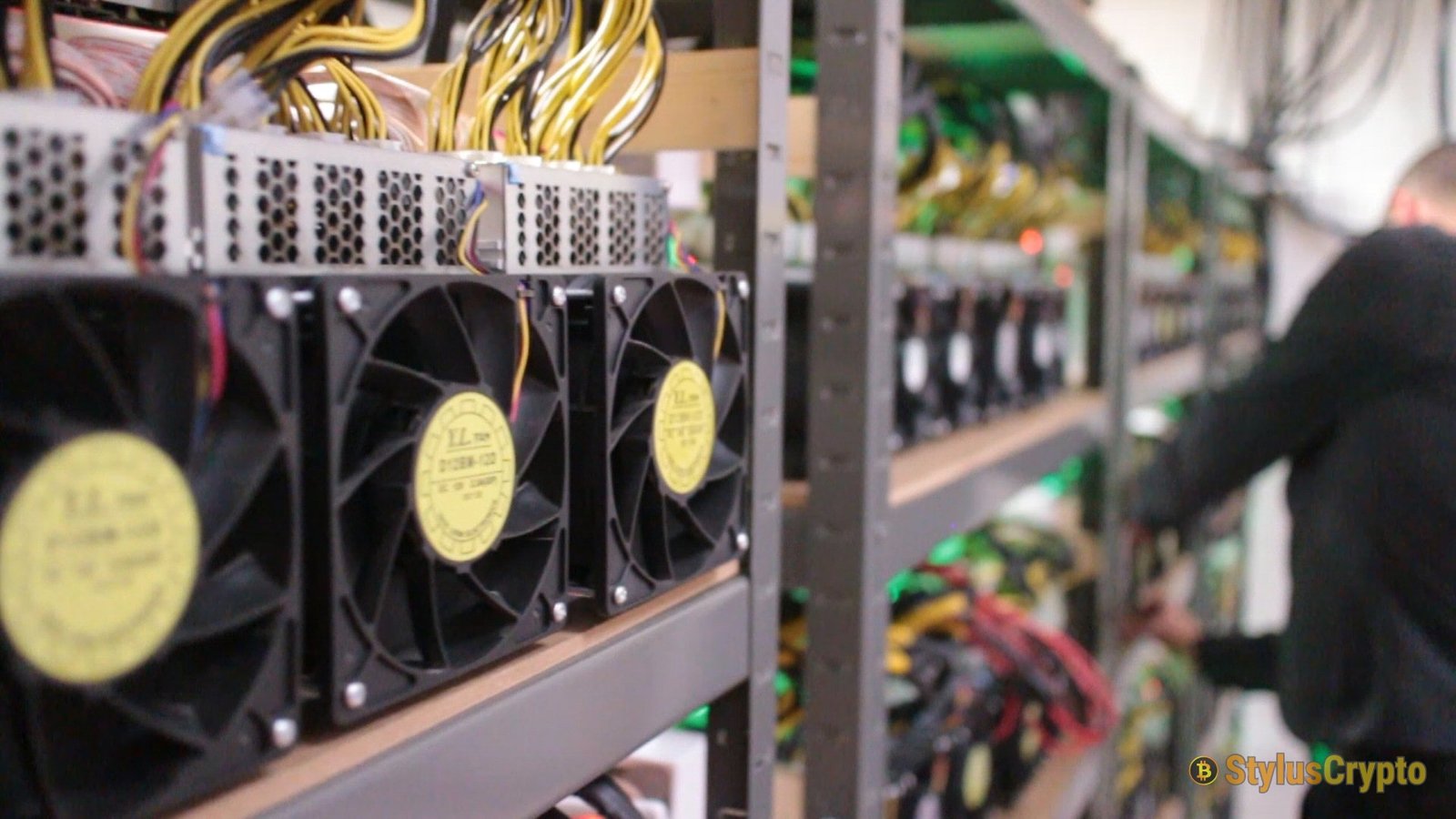Crypto Mining Hosting: Cryptocurrency mining, the backbone of decentralized digital currencies like Bitcoin and Ethereum, has evolved dramatically since its inception. Working on personal computers, early miners have given way to specialized setups and large-scale mining farms. As the competition for cryptocurrency rewards intensified, the need for more efficient mining operations led to the rise of crypto mining hosting services. This guide explores the latest developments in this industry, the advantages of hosted mining, and what miners should consider when choosing a provider.
What is Crypto Mining Hosting?
Crypto mining hosting refers to outsourcing the maintenance and operation of mining hardware to a third-party service provider. Instead of setting up a mining rig at home or in a local facility, individuals or companies can rent space in a specialized data centre, where experts handle the hardware, cooling, electricity, and maintenance.
These hosting services typically offer different levels of involvement, from colocation (where miners ship their rigs to be hosted) to full-service packages, including renting the hardware from the provider. Hosting centres are often located in regions with low electricity costs and favourable climates, optimizing the overall profitability of the mining operation.
The Current State of Crypto Mining Hosting
As cryptocurrency mining becomes increasingly resource-intensive, hosting services have expanded to meet the demand. The global trend toward renewable energy, the increasing complexity of mining algorithms, and the regulatory environment have all shaped the crypto mining hosting landscape.
Green Energy Initiatives
With increasing concerns about the environmental impact of cryptocurrency mining, many hosting providers are shifting toward green energy solutions. Mining farms near hydroelectric dams, wind farms, or solar power plants are becoming more common. These renewable energy sources help reduce the carbon footprint of mining while lowering operational costs.
Regulatory Pressures
Governments worldwide are starting to regulate cryptocurrency mining more strictly, particularly concerning energy consumption and environmental impact. Countries like China have cracked down on crypto mining, forcing many operations to relocate. In response, hosting services are increasingly setting up data centres in regions with clear regulatory frameworks and favourable policies, such as North America, Central Asia, and parts of Europe.
Scalability and Flexibility
Modern crypto-mining hosting services are designed to scale efficiently. Whether a miner owns a few ASIC machines or runs a large-scale operation, hosting providers offer solutions tailored to various needs. Flexibility in contracts and service offerings is now a competitive advantage, with some providers offering pay-as-you-go models or customizable plans that allow miners to scale up or down based on market conditions.
Enhanced Security and Reliability
Security has always been a critical issue in crypto mining. As the industry grows, hosting providers have invested heavily in state-of-the-art security measures, including 24/7 monitoring, advanced firewalls, and physical security to protect against theft and cyber-attacks. Uptime guarantees have also improved, with top-tier services offering 99.9% uptime or better, ensuring that mining operations run smoothly without costly interruptions.
Profitability Optimization
Hosting services now go beyond just providing space and electricity. Many offer comprehensive optimization services, including regular hardware upgrades, firmware optimizations, and algorithm-specific tuning to maximize profitability. These services help miners stay competitive in an increasingly challenging market.
Benefits of Crypto Mining Hosting
Several key advantages drive the popularity of crypto mining hosting:
- Cost Efficiency: Running a crypto mining operation from home or a small-scale facility can be expensive. High electricity costs, cooling needs, and maintenance issues can quickly eat into profits. Miners benefit from economies of scale by using a hosting service, as providers negotiate lower electricity rates, implement efficient cooling systems, and optimize space to reduce costs.
- Expert Maintenance: Mining hardware, especially ASICs (Application-Specific Integrated Circuits), requires constant maintenance to function at peak efficiency. Hosting services employ experts who understand the technical nuances of mining hardware and can quickly resolve issues, minimizing downtime and improving overall performance.
- Regulatory Compliance: Hosting services often handle compliance with local regulations, ensuring that operations are legal and adhere to environmental standards. This is particularly valuable for miners unfamiliar with the regulatory landscape in different regions.
- Scalability: For miners looking to expand their operations, hosting services offer the infrastructure needed to scale efficiently. Instead of investing in new facilities, miners can rent additional space and hardware as needed, allowing for rapid growth without significant upfront investment.
- Focus on Core Activities: By outsourcing the technical and logistical aspects of mining to a hosting provider, miners can focus on other aspects of their business, such as portfolio management, market analysis, or investment strategies. This hands-off approach frees up time and resources, enabling miners to optimize their cryptocurrency strategies.
Considerations When Choosing a Crypto Mining Hosting Provider
While crypto mining hosting offers many benefits, not all providers are created equal. Miners should carefully evaluate potential providers based on the following criteria:
- Location: The location of the hosting centre can significantly impact profitability. Providers in regions with low electricity costs and favourable climates (e.g., cooler temperatures that reduce cooling needs) are ideal. Additionally, the political and regulatory stability of the region should be considered, as sudden changes in law could impact operations.
- Energy Sources: With the growing focus on sustainability, many miners prioritize hosting services that use renewable energy. This is more environmentally responsible and can result in lower costs, especially in regions with abundant hydroelectric power.
- Pricing Models: Different hosting providers offer various pricing structures, from fixed-rate plans to pay-as-you-go models. Miners should evaluate these options based on their budget, risk tolerance, and market expectations. Consider any hidden fees, such as hardware maintenance or repair charges.
- Support and Security: Ensure the hosting provider offers robust customer support and security measures. Quick response times, 24/7 monitoring, and a strong security track record are essential factors to consider. Ask about their procedures for dealing with hardware failures, cyber-attacks, and other potential disruptions.
- Reputation and Reviews: Research the hosting provider’s reputation by reading reviews and testimonials from other miners. Established providers with a solid track record of reliability, transparency, and customer satisfaction are generally safer than newer or less-proven companies.
The Future of Crypto Mining Hosting
As the cryptocurrency industry continues to evolve, so will the crypto mining hosting sector. Emerging technologies, such as more efficient ASICs, AI-driven optimization tools, and advanced cooling systems, will likely drive further innovations in hosting services. Additionally, the push for more environmentally friendly and sustainable mining practices will continue to shape the industry’s future, with hosting providers playing a crucial role in this transition.
In conclusion, crypto mining hosting offers a viable solution for miners seeking to optimize their operations in an increasingly competitive and resource-intensive industry. By carefully selecting a reputable hosting provider and staying informed about industry trends, miners can continue to profit from cryptocurrency mining while minimizing its associated challenges and risks.

